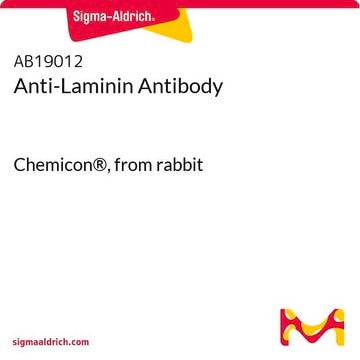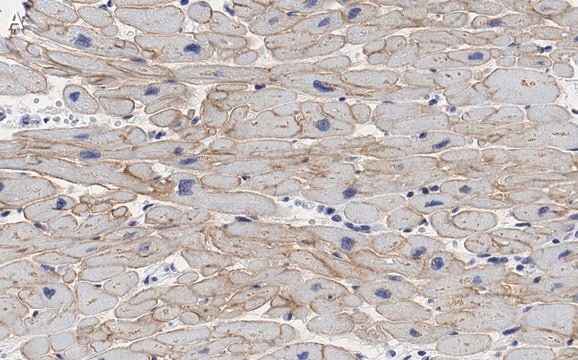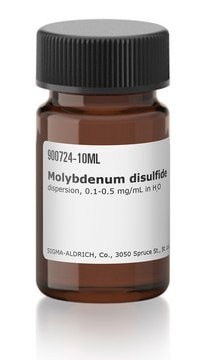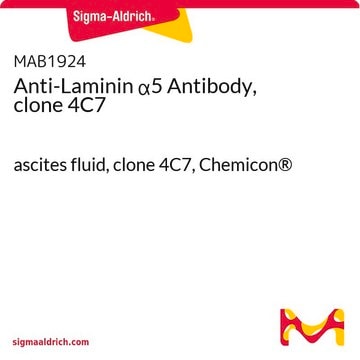AB2034
Anti-Laminin Antibody
Chemicon®, from rabbit
Synonym(s):
Anti-LAMA, Anti-PTBHS, Anti-S-LAM-alpha
About This Item
Recommended Products
biological source
rabbit
Quality Level
antibody form
affinity purified immunoglobulin
antibody product type
primary antibodies
clone
polyclonal
purified by
affinity chromatography
species reactivity
mouse
manufacturer/tradename
Chemicon®
technique(s)
ELISA: suitable
immunohistochemistry: suitable
radioimmunoassay: suitable
NCBI accession no.
UniProt accession no.
shipped in
dry ice
target post-translational modification
unmodified
Gene Information
mouse ... Lama1(16772)
Specificity
Immunogen
Application
IHC (paraffin) - use diluted at ≥ 1:500 on fixed, paraffin-embedded mouse tissues (skin, liver, etc). (immunoperoxidase technique with the Envision / Dako kit);
ELISA - use diluted at ≥ 1:200 (OD ≥ 500).
Optimal working dilutions must be determined by the end user.
Cell Structure
ECM Proteins
Physical form
Storage and Stability
Other Notes
Legal Information
Disclaimer
Not finding the right product?
Try our Product Selector Tool.
Storage Class Code
12 - Non Combustible Liquids
WGK
WGK 1
Flash Point(F)
Not applicable
Flash Point(C)
Not applicable
Certificates of Analysis (COA)
Search for Certificates of Analysis (COA) by entering the products Lot/Batch Number. Lot and Batch Numbers can be found on a product’s label following the words ‘Lot’ or ‘Batch’.
Already Own This Product?
Find documentation for the products that you have recently purchased in the Document Library.
Our team of scientists has experience in all areas of research including Life Science, Material Science, Chemical Synthesis, Chromatography, Analytical and many others.
Contact Technical Service








